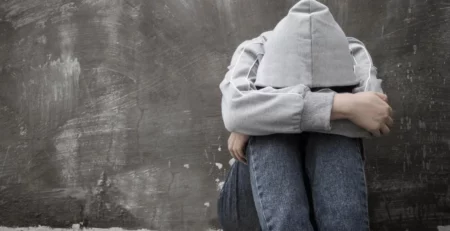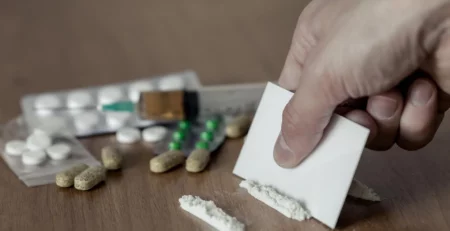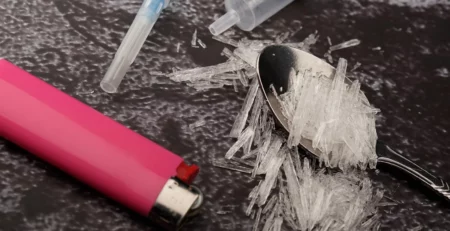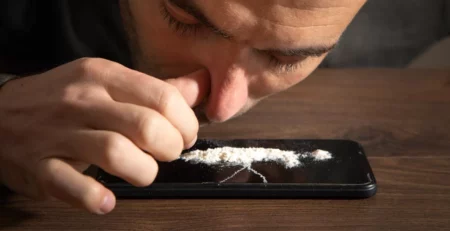What are the 7 Stages of Trauma Bonding?
Understand Trauma Bonding and Get Insights to Overcome It
Does your relationship make you feel safe, heard, and respected? Or do you feel like it’s easier to just accept the upsetting and damaging parts of your relationship because of the good times you’ve had in the past? If you find that the bad times outweigh the good times, especially lately, but you can’t seem to leave, you might be experiencing a trauma bond.
Relationships are meant to give life purpose, not take it away. Finding someone to share your life with can change your world forever – especially if you end up trauma bonding and settle for the unhealthy dynamic your relationship develops.
But there’s hope. If you or a loved one feel stuck in a relationship that’s impacting your physical or mental health, effective trauma therapy from a treatment center like Icarus Nevada can help you break free and repair the damage that abusive relationships leave behind.
Icarus Behavioral Health Nevada is a comprehensive rehab center that can help you overcome your addiction, mental illness, or co-occurring disorders. They offer one-track mental health programs that include trauma treatment in a safe and supportive environment that helps you rebuild your self-esteem, self-worth, and perspective on romantic relationships so that you can overcome the trauma bond you experienced.
Keep reading to learn more about trauma bonds, the 7 stages of trauma bonding, and how you can escape and overcome them. And remember, our caring Admissions team is here at any time if you would like a confidential call for additional treatment support!
What Is Trauma Bonding?

Trauma bonding is an abusive relationship dynamic that forms between two people: an abuser and an abused person. Trauma bonding is often a coping mechanism that helps you navigate abusive relationships where you feel like you don’t have any control or feel trapped. Trauma bonding can and often does result in PTSD for those on the receiving end of such abuse.
During trauma bonding, the abuser will usually be affectionate at the beginning of the relationship to create positive moments and memories that they can fall back on after they’ve switched to becoming abusive. They want you to overlook the bad things they’re doing now because you’re hoping for the good times to come back.
Alternatively, the entire relationship can switch between drastically positive and incredibly negative from the beginning, which the abuser will use to confuse and emotionally manipulate you. There will be higher highs and lower lows, which can become addictive.
While trauma bonds are most commonly formed between romantic partners, they can develop between any two people who have a power imbalance, like a parent and child, teacher and student, or a religious leader and follower.
Confidential Trauma and PTSD Assessment – Call Now!
How Does Trauma Bonding Differ From Love?
In the beginning, trauma bonding and love may look similar. However, their intentions are far different.
Healthy relationships are based on love. When your partner loves you, they want what’s best for you. A healthy relationship is based on respect, trust, and caring, which go both ways, and you want to stay together because they help you be your best self. Essentially, it’s about what you can do for the other person, not what they can do for you.
Trauma bonds are rooted in fear, dependence, and manipulation. The abuser will change their personality and do things to make you feel a certain way, controlling your emotions and establishing dominance over you. For abusers, trauma bonds are about what you can do for them, not what they do for you – and over time, you may begin to care more about what you can do for them than what they offer you.
What Type of People Experience Trauma Bonds?

Trauma bonding can happen to anyone, and anyone can become an abuser. However, there are some personality traits and characteristics that may make someone more likely to be an abused person or abuser.
Common Trauma Victim Characteristics
Trauma bond victims are generally people who are people-pleasers. If you’re tolerant, forgiving, and empathetic, you’re less likely to see how your partner’s abusive behavior is wrong and unacceptable. Instead, you may decide to give them another chance repeatedly.
Other characteristics of trauma bond victims are:
- Low Self-Esteem: Many abusers prey on people who don’t think highly of themselves. If you don’t believe that you deserve to be treated well, you’ll be more likely to accept abusive behavior and negative attention.
- Antisocial or Isolative: It can be hard to tell you’re in an abusive relationship, but it’s usually more obvious to other people. If you don’t have many friends or live an isolated life where others can’t see the way you interact with your abuser, it’s hard to recognize that their behavior isn’t acceptable.
- Past Victims of Abuse: Unfortunately, experiencing emotional abuse can become a trend for some people. When you’ve been in an abusive relationship in the past, you might be used to being treated poorly and less likely to recognize the psychological abuse you’re experiencing.
These traits may make you more likely to develop a trauma bond, but that doesn’t mean you can’t avoid or escape one. It’s never too late.
Common Abuser Characteristics
Abusers in trauma bonds are often manipulative and lack empathy. They want to have power over your mental and emotional state. As long as they get what they want, they don’t care how it affects you.
Abusers are often:
- Charismatic: Establishing dominance in a toxic relationship requires a certain amount of convincing. Their goal is to create an emotional addiction. The person needs to be able to convince you that they care and mean well so you will give them more chances and stick around.
- Possessive: Abusers often see their victims as below them or objects that can be controlled and manipulated. They may mask their jealous or angry behavior as possessive, but it often comes down to wanting to control you. They may even punish you for doing things that risk them losing control, like talking to friends or family.
- Narcissistic: Many abusers have high confidence and narcissistic personalities. They believe that the way they’re acting is acceptable, that you’re lucky for even being in a relationship with them, and that their “love” is worth any emotional abuse you receive.
Unfortunately, these traits can be hard to identify early in the relationship, especially when concealed during the “good times” when your abusive partner tries to win you over.
The 7 Stages of Trauma Bonding

Trauma bonding can manifest in a variety of different ways, but many cases will follow a pattern that includes 7 stages of trauma bonding where you or the abuser’s behavior will change. Those who have had adverse childhood experiences and childhood trauma of some kind are more at risk of having a trauma bond relationship, as well as developing Complex PTSD.
If any of these stages of trauma bonding sound familiar, seek help getting out of the situation safely as soon as possible.
1) Love Bombing
The earliest stage of the trauma bonding process is love bombing, which involves extreme outpourings of love, affection, and gifts. They’ll make you feel special and show you the very best they have to offer, so you become dependent on them for affection and validation. Then, they’ll take advantage of these fond memories at a later stage when you hold out hope that things can be that good again.
2) Trust and Dependency
After you’ve been showered with love, it’s easy to feel a deeper connection and emotional attachment to your abusive partner. They’ve shown that they “care” about you and want you to be happy, so you begin to trust their thoughts and intentions as good-natured. You might trust them to make decisions for you or tell you what to do, like quitting a job or blocking friends, because they seem to have your best interests at heart.
3) Criticism
Once an emotional abuser has gained your trust, they may take things a step further by starting fights or criticizing you under the guise of wanting to help you. Small things you do or say can become problematic to them, which may make you feel like you did something wrong and need to apologize. These criticisms can result in you cutting yourself off from others, changing your behaviors, or feeling bad about yourself to further lower your self-esteem.
4) Gaslighting
Gaslighting is intentionally misleading someone to make them second guess themselves. During this trauma bonding stage, the abuser will make you feel like you’re going crazy. They’ll do something wrong and then insist they didn’t, making your reaction seem inappropriate. Or, they’ll exaggerate something you do or say and make you feel bad about yourself by shifting blame to you.
5) Resignation
At this stage of the trauma bond, you’ve begun questioning everything you do. You could feel helpless, trapped, worthless, or any other negative emotion because you’ve been manipulated into being afraid of opposing your abuser. You may begin fawning, or giving into their psychological abuse to avoid further confrontation, as a trauma response and become emotionally exhausted to where you just resign your emotional health to them.
6) Loss of Self
You’ve now resigned and lost your sense of self, which can include losing your career, friends, or family. You may evaluate yourself based on how your abuser treats you without thinking about how you feel in the relationship, which makes you afraid to oppose them and afraid they’ll leave you with nothing.
7) Emotional Addiction
Once you feel like you’ve lost it all, you become totally dependent on your abuser and addicted to their attention – both good and bad. You simply want to stay with them because they give you a purpose and have no other sources of attention or validation to rely on.
During the final stages of trauma bonding, you may even restart the cycle with the love bombing phase again. All of a sudden, they realize how terrible they’ve been, and they want to make it up to you. But, it simply starts the cycle of abuse again.
Alternatively, they can break you down even further by withholding all attention and forcing you to do something drastic to get their attention back. This stage is dangerous because it can cause you to hurt yourself to prove your loyalty despite not doing anything wrong.
What Effects Does Trauma Bonding Have On Victims?

Trauma bonding is an attack on the victim’s mental and emotional health and overall sense of self. They’ll try to change the way you think, the way you act, how you feel about yourself, and anything else to gain more control over you. Unsurprisingly, these attacks can leave wounds, also known as emotional trauma, that take time and professional help to heal – even if you’re able to escape quickly.
A few of the most common symptoms of trauma bonds include:
-
- Anxiety disorders
- Depression
- Post-traumatic stress disorder
- Trauma meltdowns
- Dissociation
- Flashbacks
- Nightmares
- Fatigue
- Chronic illness from stress
Trauma can have a serious, long-lasting impact on the brain, which makes it crucial that you get help as soon as possible.
Get Effective Trauma Treatment Options – Call Now!
4 Ways to Safely Escape A Trauma Bond
It’s crucial that you can escape your trauma bond to avoid getting stuck in the endless cycle it creates. But you need to be safe while you do it.
Here are the steps you need to take to escape a trauma bond safely.
1) Learn About Trauma Bonding
Knowledge is power – especially when your abuser is doing everything in their power to keep you uninformed and isolated. Knowing what the signs of abusive relationships are can help you identify whether or not you’re in one of the 7 stages of trauma bonding before it gets too advanced and becomes harder to escape.
2) Create An Escape Plan
While it sounds dramatic, you need an escape plan for leaving a trauma bond because your abuser spent a lot of time trying to break you down, so they will do what they can to avoid losing you. They may try to stop you from leaving, take away your phone, or track you down to bring you back to them.
When it comes time to leave an abusive relationship, you can call the National Domestic Violence Hotline for additional resources. You can also talk to a trusted family member or friend and get their help to escape.
3) Physically Leave The Relationship
Physically getting away from your abuser is a crucial step towards breaking free of a trauma bond. Without it, you risk physical harm or falling back into their trap.
Be sure you leave when it’s safe, like when your abuser is at work or out of the house for an extended period of time.
4) Block All Communication
Once you’ve escaped a trauma bond, you need to block all communication you can with them. They’re certain to try to manipulate you to come back by telling you you’re overreacting or saying they’ll treat you better, so the only way to remove that risk is not to speak to them.
The Importance of Trauma Therapy After Leaving A Trauma Bond

Life after leaving an abusive trauma bond can be difficult. You may develop trust issues, mental health conditions, a substance abuse disorder, and low self-esteem that make it hard to get back to controlling your own life.
Trauma therapy makes it easier to bridge the gap between your old life and your new independent life. Working with a therapist and psychiatrist can help you get the counseling and medication management that you need to cope with the symptoms of your abuse and accept the potential of a healthy relationship.
You can expect cognitive-behavioral therapy (CBT), eye movement desensitization and reprocessing therapy (EMDR), support groups, and other trauma-focused treatment, alongside medication, to help you heal your mental health from the trauma you experienced.
Up To 100% of Rehab Costs Covered By Insurance – Call Now!
Break Free from Abusive Trauma Bonds at Icarus Nevada
It’s not easy to escape a trauma bond. When you’ve spent most of your time around a person – someone that you trusted and loved at one point – and they sabotage your life, it can be hard to love and trust again. But you owe it to yourself to get the help you need to escape and overcome the trauma that’s left behind.
Icarus Nevada offers a wide range of mental health programs, including trauma-focused treatment, that are available separately or alongside addiction treatment as part of a dual-diagnosis program. They’ll help you take your life back again and return to a place where you can feel safe and confident again. Our caring and supportive staff will work to ensure you’re comfortable and secure, including helping you with ongoing care so you can continue improving.
A trauma bond can make it seem like there’s no light at the end of the tunnel. But, with the right help, you can overcome the abuse and get back to living. Make the confidential call today to learn more about our trauma-focused treatment options.
References
- https://www.ncbi.nlm.nih.gov/books/NBK207191
- https://www.womenshealth.gov/relationships-and-safety/domestic-violence/leaving-abusive-relationship
- https://www.acf.hhs.gov/fysb/programs/family-violence-prevention-services/programs/ndvh
- https://www.ncbi.nlm.nih.gov/books/NBK279297/
- https://www.ncbi.nlm.nih.gov/pmc/articles/PMC3951033/













